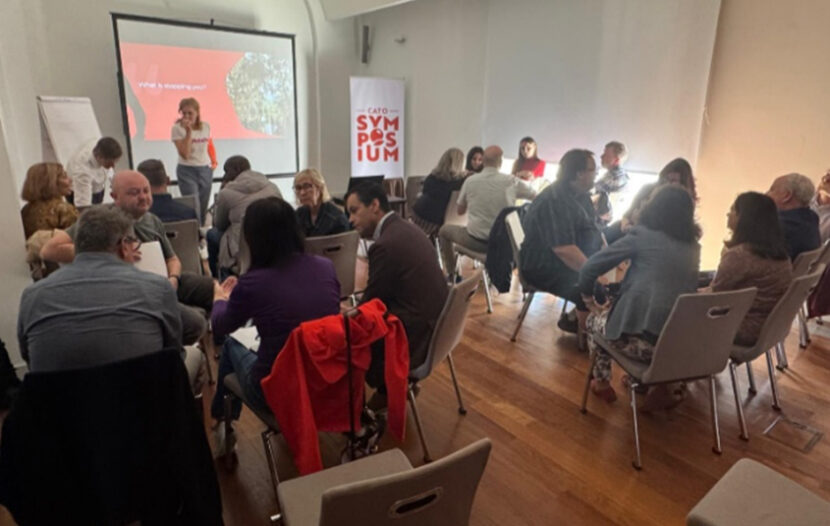TORONTO — The Canadian Association of Tour Operators recently wrapped up its inaugural CATO Symposium, taking place in Alentejo, Portugal with a focus on sustainable travel.
“For our tour operators, @CATO, sustainability in the travel industry is not just about minimizing environmental damage; it’s about ensuring that travel can continue to thrive while balancing the needs of the planet, local communities, and travellers. Sustainable tourism helps protect the world’s natural and cultural treasures, supports local economies, and meets the growing demand for responsible travel,” said CATO’s Executive Director, Jean Hébert.
Fourteen CATO members attended the symposium, which featured a variety of working sessions, including a meeting with more than 50 local suppliers, as well as a presentation and discussion on sustainable development in the travel industry.
The workshop titled ‘Sustainability Accelerator’ focused on the topic of ‘What is Sustainability and Why Does It Matter for Business.’ The session featured Professor Graham Miller and Rochelle Turner.
Turner serves as the Global B Corp Impact Manager at Intrepid Travel, where she is responsible for overseeing and enhancing the company’s impact in alignment with B Corp certification. She also co-chairs Travel by B Corp in the UK.
Professor Miller holds the Rodrigo Guimaraes Chair of Sustainable Business at Nova School of Business and Economics, where he is also the Academic Director
of the Westmont Institute of Tourism and Hospitality. His research concentrates on the factors that drive greater sustainability across society, particularly in the travel and tourism sector.
The session also included presentations from two prominent Portuguese specialists who discussed sustainable tourism in Portugal.
CATO participants gained firsthand experience in sustainable development and recognized the essential steps needed to create a meaningful impact in the travel industry, said CATO Chair Brett Walker. These steps include raising awareness, providing education, and implementing concrete actions for a sustainable future.
Sustainable travel is critical not only for business growth but also to ensure harmony with the planet and the communities travellers visit, added Walker.
“Alentejo offers both the beauty of its remarkable past as well as a vision for a promising future. A future in which residents and travellers don’t simply co-exist but instead enhance each other’s wellbeing and benefit equally. CATO shares this vision, and it was abundantly clear during our time in Alentejo that our members do too,” he said.
Outside of the conference room, the CATO group enjoyed Alentejo’s stunning landscapes, rich cultural heritage and fascinating history, plus of course Portuguese cuisine and wines. “Additionally, the locals are incredibly friendly and welcoming, making life here feel ‘devagar’ (slow and relaxing). This warmth was evident not only throughout the trip but also during our meetings with local suppliers, hotels, cultural events, outdoor activities, and wine tastings. Visits to vineyards, cork tree plantations, and olive groves are all must-do activities in this enchanting region, or explore the ruins of Roman temples, or stroll through the medieval streets of Évora, a UNESCO World Heritage site.”

